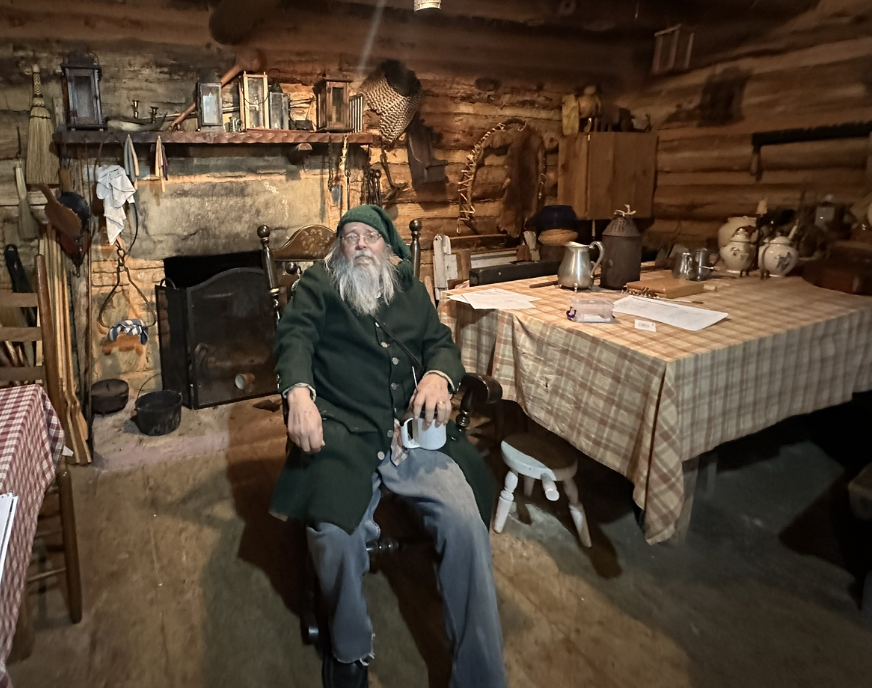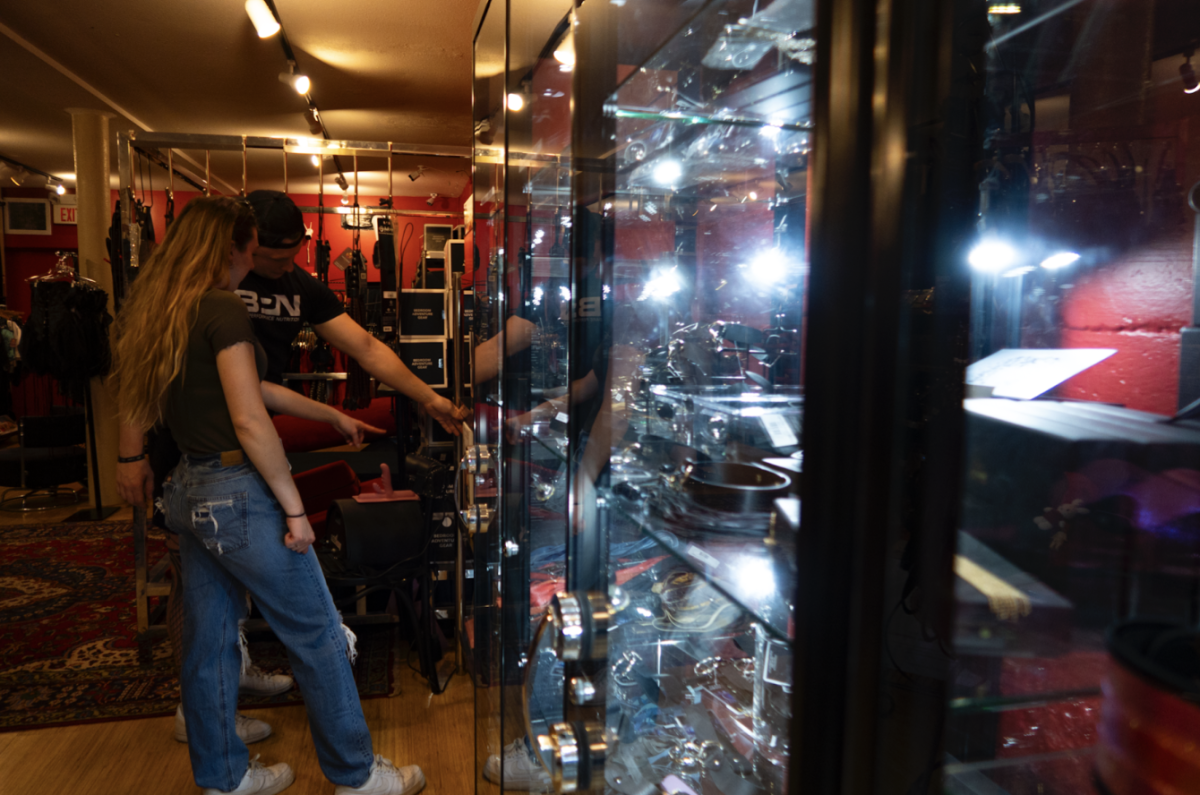Rosa Fallon
Arts & Features Staff Writer
[email protected]
If anyone has a thorough understanding of environmental challenges of today’s modern world, it is Dana Boyd Barr.
Barr is an analytical chemist and research professor of environmental health at Emory University’s Rollins School of Public Health in Atlanta, Georgia.
She presented the 21st Annual S. Dexter Squibb Lecture at UNC Asheville on Monday, Oct. 1. The lecture, which took place in the Sherrill

Center, was live-streamed in room 125 of Rhoades Robinson Hall and free of cost to those who attended.
The S. Dexter Squibb Lecture Series was created in honor of retired UNCA Chemistry Department Chair Dexter Squibb. Squibb was the chair of the department of chemistry from 1964 to 1994 and passed away in 2017. The objective of this series is to bring nationally recognized chemistry educators to UNCA whose educational goals reflect the essence of Dexter’s achievements.
“He really is the foundation of the chemistry department as it is today. We stand on the shoulders of giants,” said Sally Wasileski, current chair and associate professor
of the chemistry department.
Barr’s lecture, “The Importance of the Environment in Human Health,” explored the timeline of environmental issues and regulations as well as the phenomenon of climate change deniers.
“Environmental health is an important area and its underpinnings, in my opinion, are chemistry,” Barr said.
As an analytical chemist and exposure scientist, Barr’s research spans from prenatal exposures and neurodevelopment to using chemistry to assess exposure to many different environmental toxins.
“Chemistry is a very broad field. You can do a lot of things with it. Me, I kind of focused on the environment, so I’m a chemist but I kind of morphed into this exposure scientist and I couple this with epidemiology to do a lot of work on the interaction with humans and the environment,” Barr said during her lecture.
Barr talked about a variety of different interactions between humans and the environment and how they are impacting our health and the health of children. She also discussed the history of environmental health leading up to the 21st century, including new and current youth trends, such as vaping and how scientists do not yet understand its health outcomes.
“Unfortunately, one of the cool things to do is vape. They put some kind of chemical in it that is supposedly okay. We really don’t know the health outcomes of vaping,” Barr said.
Barr highlighted other environmental issues including, the spreading of diseases, effects of natural disasters, exposure to pesticides and the political and humanitarian issues relating to the environment, such as chemical warfare.
“It’s really important to understand that these environmental interactions are personal to each individual. We each know what we are prepared to do to preserve the environment. We all know what we want to do to help maintain our health,” Barr said.
Barr also shed light on issues of public policy and how changes in established regulations by the Environmental Protection Agency could potentially lead to the demise of defenses against environmental threats.
“The director of children’s environmental health at the EPA was put on administrative leave for no reason that was given at all. A lot of people have speculated that this is the beginning of the demise of the program of children’s environmental health at EPA which is kind of sad,” Barr said.
Barr said there are fundamental principles of environmental health, and the relationship between humans and the environment is one of them.
“Humans are fundamentally connected to the natural world, meaning we influence everything and everything influences us,” Barr said.
During her lecture, Barr discussed the synthetic organic compound Dichlorodiphenyltrichloroethane (DDT) and its dangers and long-lasting effects on the health of humans and animals. She emphasized her point by talking about Rachel Carson’s book called Silent Spring which was published in 1962. Barr said Carson’s book is about modern environmental concerns, particularly the chemical DDT and how it entered the food chain.
“A lot of human adverse outcomes have been associated with DDT exposure, including reproductive outcomes, cancer and genetic damage. We all have measurable levels of DDT in our blood,” Barr said.
According to Barr, DDT was banned in the U.S. in 1972 by the EPA, but this does not mean we are not exposed to it through the food chain.
“Even if you were born afterward, you have it continually in your diet primarily from dairy and meat and we have this biomagnification that has occurred.”
While Barr said she believes the ban of DDT was a good thing, she said she also thinks it is a bad thing because it was replaced with a more toxic alternative.
“We see this happening in the U.S. still today. Everybody’s probably heard about BPA, but has anyone asked about what they’ve replaced BPA with in those water bottles?”
Toward the end of the lecture, Barr said while environmental health issues are daunting concepts, it is being broken down and achievements are being made. She imparted to the audience her key points.
“We’ve made a lot of progress to include environmental health, but we have to be careful not to regress too much,” she said.
Vice Chancellor for University Advancement, Carla Willis says she believes we need more people like Barr to focus on these issues. According to Willis, having Barr here at the university sharing her findings is beneficial to our community. She says she also believes that it creates potential opportunities for students.
“She talked about how she’s going to be looking to hire students and she encouraged students to seek her out if they’re looking for employment opportunities so I think it translates into internships and certainly full-time employment opportunities,” Willis said.
Sally Wasileski says she also believes that having Barrhere is very beneficial to the campus community overall.
“We’re just really thrilled to have Dr. Dana Boyd Barr here on campus. She is an incredible scientist,” Wasileski said.






















